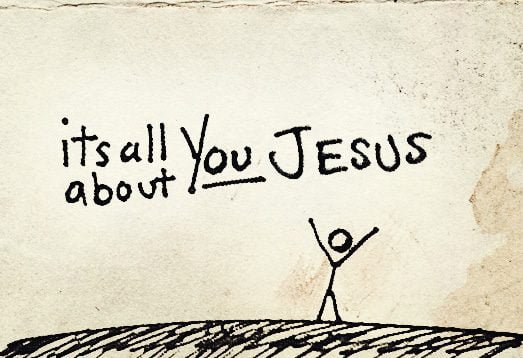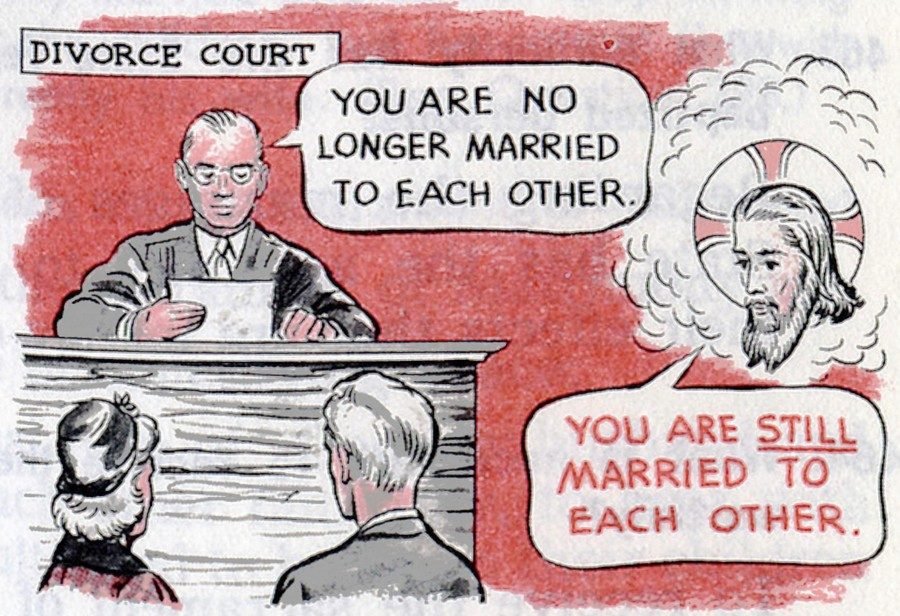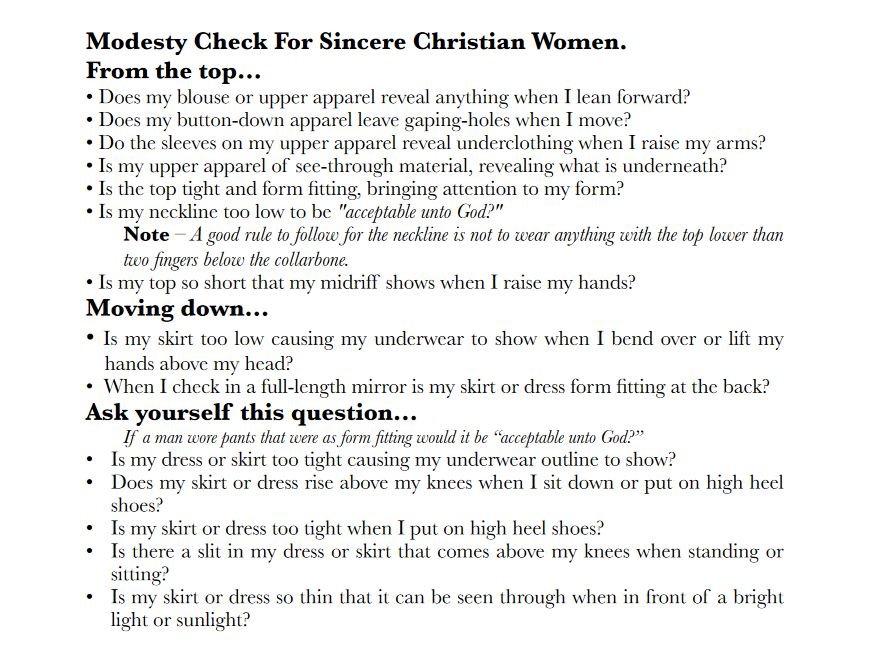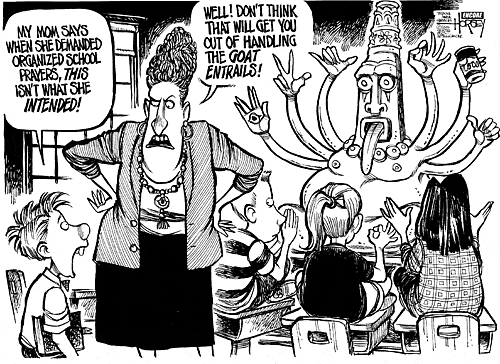
A guest post by ObstacleChick
A recent research survey from Barna Group shows that more members of Generation Z — people born 1999-2015 — than any other generation consider themselves to be atheist, agnostic, or non-religious. Fully thirty-five percent of Generation Z members self-identify as atheist, agnostic or non-religious. By comparison, thirty percent of millennials, thirty percent of Generation X, and twenty-six percent of Baby Boomers self-report within this group. Additionally, thirteen-percent of Generation Z respondents identify as atheist as opposed to seven percent of millennials.
Many have speculated as to why so many within the younger generations are abandoning identification with or the practice of religion, and there are many factors at play. With the widespread availability of internet access, media access, and social media, people are able to connect with others from a variety of backgrounds from around the world. Anyone with a smartphone can look up any information on demand. And interestingly, Generation Z are more savvy when it comes to understanding that much of what they see on social media is fantasy – there are filter apps, apps for changing one’s appearance, lighting, etc. As my eighteen-year-old daughter says, there is absolutely no reason anyone would post an unflattering picture of themselves on social media – you can make any photo, any selfie, look the way you want it to look. Many in this generation understand that nothing is as it seems and everything is about marketing.
I asked my kids what they and their friends think about religion. As background, I grew up in Tennessee in a Southern Baptist family and attended a fundamentalist evangelical Christian school from grades five through twelve. I was taught young earth creationism and was thoroughly indoctrinated with the fundamentalist evangelical doctrines of salvation (virgin birth, crucifixion and resurrection of Jesus for our sins), inerrancy of the scriptures and literal truth of the Bible, original sin, and so forth. My husband was raised nominally Catholic, which means he was baptized as an infant, received first communion at age seven or eight, attended church sporadically (mostly on Christmas and Easter), sometimes gave up something for Lent, didn’t eat meat on Fridays during Lent, and didn’t know what kind of Christian he was when I asked him early in our relationship. His family members were raised Catholic, but many barely attend mass, and the millennial cousins don’t practice the religion at all. My husband and I attended a progressive Christian church until our kids were about seven and five years old, and other than the occasional funeral or friend’s bar or bat mitzvah, the kids haven’t attended a religious service since.
For geographical reference, we live in Bergen County, New Jersey, minutes from Manhattan. The school district that my kids attend is comprised of families from middle-class to wealthy socio-economic status. About thirty-five percent of the students are Asian (primarily Korean but also Japanese, Chinese, Filipinos, and Indian). Most students identify as Caucasian, and there are a handful of Latino and African American students. There are enough Jewish families in our district that the schools close on Rosh Hashanah and Yom Kippur. My kids have a few classmates who are observant Muslim girls, choosing to wear the hijab. My kids know classmates who label themselves as Catholic, Jewish, Muslim, Jains, Hindu, Sikh, Protestant Christians (primarily progressive), and non-religious.
My son was born in 2002 and is sixteen years old. I asked him what his thoughts were about religion. His response: “Honestly, I don’t think about it much. I don’t need religion or want it, I don’t have an interest in finding out more about it, and I can’t see how my life would be improved by it. I don’t believe in any gods. I don’t remember attending church when I was little, and I remember we attended some funerals and my friend’s bar mitzvah service. If you want to be a Muslim, or a Christian, or a Catholic, or a Hindu, or a Buddhist, you go for it and do you. Do it on your own terms, but I don’t need to be involved in it.” I asked him if people have asked him what his religion was, and he said yes. His response is, “We aren’t doing religion right now,” and he said they don’t ask him more about it. I asked him if he thought people tried to force their religion into politics, or if he thought they should or shouldn’t. He said, “I think some people try to force their religion on others because they can’t help it. They believe a certain way and they think other people should follow their ideas. They don’t understand what separation of church and state means even though we learn it in history class. They are so wrapped up in what they think is right and wrong that they try to get others to do things their way too.” I asked him if his friends practice religion regularly, and he said it varies. One friend’s family is devoutly Catholic and won’t eat meat on Fridays during Lent, but that doesn’t stop my son from ordering the most meat-laden meal at Taco Bell in front of his friend. As my son said, “His religious food rules are his issue, not mine.”
My eighteen-year-old daughter is taking an English course called World Mythology and Archetypes in Literature. I didn’t realize how little my kids knew about religious stories until one night my daughter said, “I just don’t get the point of Jesus. I mean, he’s dead, so what’s the big deal about him? I said so in class today, and several people agreed with me.” (I nearly fell out of my chair). I informed her that many Christians believe that Jesus was raised from the dead and now lives in heaven. She said, “Seriously? People actually believe that? I thought they knew that was just a story. So for the sake of argument, what does Jesus do now?” I told her that people pray to him for things – healing, to find a close parking spot, to get an A on a test. She said, “So if they’re praying to Jesus what is God doing? I thought people prayed to God.” I told her that some Christian sects believe in the trinity, that God, Jesus, and the Holy Spirit are all God but separate too. She said, “That makes no sense. Is that like the three branches of government?” Another day she said, “Who is the dude who made everything bleed and then the frogs and flies came?” I almost choked on my tea at this description of Moses.
Bible stories do sound so ridiculous when explained from scratch to an unfamiliar audience. This is why religions work hard to indoctrinate and capture the four- to fourteen-year-old demographic. It is well known within the educational community that children’s critical analytical thinking skills and ability to understand abstract concepts are not developed until they reach their early teen years. That is why algebra is typically not taught before that age range, as children’s thought processes aren’t adequately developed. Therefore, it makes complete sense to indoctrinate children with religious concepts before they can analyze the concepts and make well-thought-out decisions.
But as Millennials, who are dropping out of religion, age and have children and do not introduce their children to religion, it is unlikely that those children will participate in religion. Proselytizing is not the most effective way to gain new religious members. Sure, religious groups may pick up a few new members in times of disaster (remember the increase in religious participation after 9/11) or through help groups such as Alcoholics Anonymous, but by and large people aren’t knocking on church doors asking to be let in. And I doubt that all those Jehovah’s Witnesses and Mormons who go around knocking on doors pick up very many members either.
Historically, people would remain throughout their lifetimes in the religion in which they were indoctrinated. I always thought that Catholicism was particularly brilliant with their concept of sacraments. The Church basically “owned” a person from cradle to grave. For centuries, the Catholic Church was the center of all village life, and it even controlled government. For one to be in good standing with the church, and thus in good standing with government, one needed to complete one’s sacraments and give money to the church. Whether one believed or not — and who knows, as most peasants were illiterate and masses were conducted in Latin — one was tied in to the community. But as things changed with the Reformation, with colonization of The New World, with the expansion of travel and technology, the church’s central role is rapidly diminishing in first world areas. The world in which my Generation Z children live is vastly different from the one my Baby Boomer parents inhabited. Very few of my Millennial family members and coworkers are raising their children in religion. Does that mean that religion is dying? One can hope . . .
On a side note, my kids don’t identify themselves as atheists. They just say they aren’t religious, or that they don’t practice a religion. My husband and I identify as agnostic atheists. While my children are atheists, they do not feel the need to label themselves as such. I don’t know if the difference is that my husband and I had a religious label at one point and feel the need to definitively differentiate ourselves from religion whereas our kids do not feel that need. What are your thoughts?







